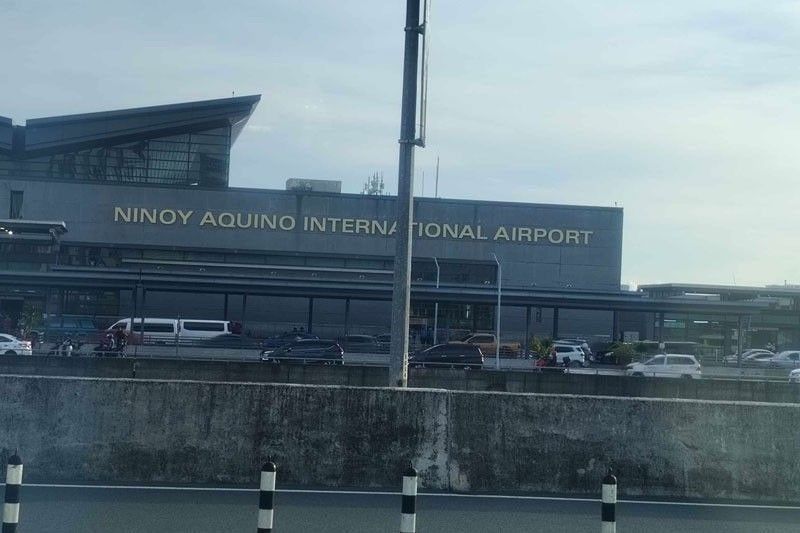Improved OTP at NAIA


A recent report released by the New NAIA Infra Corp. (NNIC), the private sector consortium that took over the management and operations of the Ninoy Aquino International Airport (NAIA), revealed very interesting findings on the cause of flight delays in the country’s premier gateway.
The report showed that 70 percent of the delays are due to the airlines and/or ground handlers. Of this, 45 percent is caused by consequential delay which means that when the first flight of the day is delayed, then the rest of the flights will also be delayed. Furthermore, 13 percent is due to aircraft change and 12 percent, aircraft rotation.
Meanwhile, 20 percent of the delay is caused by reasons attributable to the government, the Civil Aviation Authority of the Philippines (CAAP) and/or the Air Traffic Control (ATC), 10 percent is due to problems with the airport such as ramp congestion, awaiting pushback clearance or awaiting gate availability while the remainder is due to other reasons like unfavorable weather at origin or destination station.
NNIC officials are optimistic that all these are either improvable or controllable. And the new operators of NAIA seem to be doing a good job in this respect.
From a system-wide OTP or on-time performance (15 minutes or less of delay) of 71.09 percent from January to Sept. 13 this year, the number has increased to 78.9 percent from Sept. 14 to Nov. 19.
NNIC officially took over NAIA operations from the government agency Manila International Airport Authority last Sept. 14 with the task of modernizing the 76-year-old gateway.
From Nov. 1 to 14, 2024, system-wide OTP improved to 81.65 percent, which is deemed a huge feat considering that it was achieved during the peak Undas period. During this period, arrival OTP was at 87.76 percent while departure OTP was at 75.53 percent.
The Nov. 21 OTP report was also an eye-opener. The highest OTP was recorded at Terminal 1 at 80.45 percent, followed by Terminal 2 at 65.53 percent while the lowest was posted by Terminal 3 at 63.27 percent, for an average OTP of 66.96 percent.
NNIC, a consortium that includes San Miguel Corp. and Incheon International Airport Corp., has committed to spend P170 billion to execute its plan to elevate NAIA to world-class standards.
The government stands to gain about P1 trillion in revenues from the NAIA public-private partnership (PPP) over the 25-year concession period. This includes the 82.16-percent revenue share to be remitted to the government yearly.
NNIC plans to increase passenger capacity to 62 million annually from 43 million at present and air traffic movements to 48 per hour from 42.
In another report, NNIC said that within three to six months, immediate improvements can be felt in terms of functional escalators and toilets, stable power and water, improved air-conditioning, upgraded baggage handling, faster passenger processing, more seating and enhanced WiFi connection.
Within three years, the traveling public can also expect runway improvements, increased terminal capacity, improved commercial spaces, better traffic flow and a direct link from NAIA Terminal 3 to the Skyway system, it added.
Long-term goals include construction of a new terminal building to accommodate an additional 35 million passengers annually, flood mitigation in surrounding areas and linkage to the Metro Manila subway.
According to NNIC executives, of the 12 drainage systems surrounding NAIA, 10 are blocked. Majority of these goes to the Parañaque River which is one reason why SMC wants to clean up this river.
Terminal 3, the largest of NAIA’s four terminals, has become a problem area for NNIC.
For one, it is the only open terminal where all “meeters and greeters” of departing and arriving passengers are allowed to enter.
According to SMC chairman and CEO Ramon Ang, there are in fact three “meeters and greeters” for every one passenger.
And so the immediate goal is to decongest Terminal 3 and to use the terminal based on its original design.
By March of next year, NNIC will implement a reassignment of terminals for local airlines. The domestic flights of Cebu Pacific will be moved to Terminal 2 from Terminal 3 while the operations of AirAsia Philippines will move to Terminal 4 from Terminal 2. Meanwhile, Terminal 1 will be for the exclusive use of Philippine Airlines’ international flights. All foreign airlines will operate at Terminal 3, which will also host the international flights of Cebu Pacific and Air Asia Philippines. Terminal 2 will continue to serve domestic flights only.
At present, Terminal 1 is for international flights while Terminals 1 and 4 are for domestic operations. Terminal 3 is for both local and international flights.
Then there’s the matter of the 20-year old baggage handling system at T3.
SMC has already ordered a new baggage handling system after learning that the current facilities were 80 percent inoperable. Only one of the five installed baggage handling and explosive detection systems at T3 is operational. The new system will be in place by July of next year.
Last month, over 800 pieces of luggage were left behind by passengers after a technical glitch affected the T3 baggage handling system, adversely affecting more than 400 passengers.
With the Christmas season fast approaching, NNIC expects another record-breaking OTP, not to mention a much improved experience for the passengers given all repairs being rushed in time for the holidays.
For comments, email at [email protected]
- Latest
- Trending


























